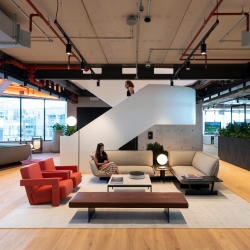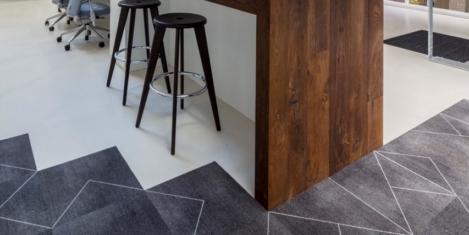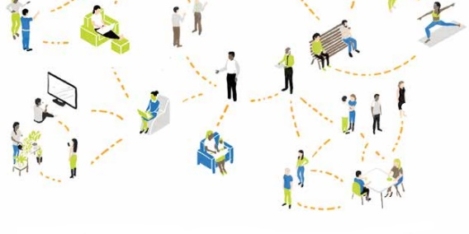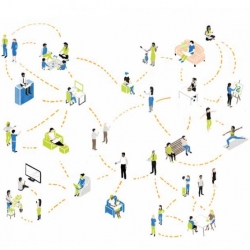To provide the best experiences, we use technologies like cookies to store and/or access device information. Consenting to these technologies will allow us to process data such as browsing behaviour or unique IDs on this site. Not consenting or withdrawing consent, may adversely affect certain features and functions.
The technical storage or access is strictly necessary for the legitimate purpose of enabling the use of a specific service explicitly requested by the subscriber or user, or for the sole purpose of carrying out the transmission of a communication over an electronic communications network.
The technical storage or access is necessary for the legitimate purpose of storing preferences that are not requested by the subscriber or user.
The technical storage or access that is used exclusively for statistical purposes.
The technical storage or access that is used exclusively for anonymous statistical purposes. Without a subpoena, voluntary compliance on the part of your Internet Service Provider, or additional records from a third party, information stored or retrieved for this purpose alone cannot usually be used to identify you.
The technical storage or access is required to create user profiles to send advertising, or to track the user on a website or across several websites for similar marketing purposes.
 The global pandemic has blurred the lines between home and work for millions of people around the world. Where once there was a clear distinction between being on and off duty, the demands of remote working and ever-presence of smartphones has created an ‘always on’ culture in many organisations. The trend has led to a number organisations in the UK to now call for a ban on out-of-hours emails in order to alleviate pressures on employees mental health. But is this really necessary, or even logistically possible, for the new world of work? We asked four leading experts for their thoughts. (more…)
The global pandemic has blurred the lines between home and work for millions of people around the world. Where once there was a clear distinction between being on and off duty, the demands of remote working and ever-presence of smartphones has created an ‘always on’ culture in many organisations. The trend has led to a number organisations in the UK to now call for a ban on out-of-hours emails in order to alleviate pressures on employees mental health. But is this really necessary, or even logistically possible, for the new world of work? We asked four leading experts for their thoughts. (more…)






 Major UK employers plan to reduce their office space by up to nine million square feet, equivalent to 14 Walkie Talkie buildings – the 37 floor high rise on London’s Fenchurch Street – according to
Major UK employers plan to reduce their office space by up to nine million square feet, equivalent to 14 Walkie Talkie buildings – the 37 floor high rise on London’s Fenchurch Street – according to 
 A report published by single parent charity,
A report published by single parent charity, 
 As 2020 came to a close, there was a palpable sense of hope that 2021 would bring with it a fresh slate with the horrors of COVID behind us. Alas, that has not happened and it seems we have more of the same, certainly for the next few months and with that the speculation about the ‘future of the office’ will no doubt continue.
As 2020 came to a close, there was a palpable sense of hope that 2021 would bring with it a fresh slate with the horrors of COVID behind us. Alas, that has not happened and it seems we have more of the same, certainly for the next few months and with that the speculation about the ‘future of the office’ will no doubt continue. 
 Central to any business is the need to communicate effectively. Whether you’re relocating to new or refurbished premises, or switching providers, it is vital to ensure your communications networks are up to the job in terms of performance and reliability. Not only is this required to support conventional telecoms and OTT services, it is key to smart building and smart infrastructure applications. Connectivity should not be limited to Wi-Fi either. Businesses are increasingly pushing mobile-only strategies and landlines are fast becoming obsolete in the workplace.
Central to any business is the need to communicate effectively. Whether you’re relocating to new or refurbished premises, or switching providers, it is vital to ensure your communications networks are up to the job in terms of performance and reliability. Not only is this required to support conventional telecoms and OTT services, it is key to smart building and smart infrastructure applications. Connectivity should not be limited to Wi-Fi either. Businesses are increasingly pushing mobile-only strategies and landlines are fast becoming obsolete in the workplace. 
 As lockdown starts to lift, more people are having to think about going back to work as normal. That means commutes, offices, cafeterias, and face to face meetings.
As lockdown starts to lift, more people are having to think about going back to work as normal. That means commutes, offices, cafeterias, and face to face meetings. 
 Flooring designer and manufacturer Milliken announced that it has been awarded WELL Certification at the Platinum level for its Clerkenwell Showroom by the International WELL Building Institute (IWBI). The prestigious distinction was awarded through IWBI’s WELL v2 pilot, the next version of the WELL Building Standard. WELL is the premier building standard to focus on enhancing people’s health and wellness through the buildings where we live, work and play.
Flooring designer and manufacturer Milliken announced that it has been awarded WELL Certification at the Platinum level for its Clerkenwell Showroom by the International WELL Building Institute (IWBI). The prestigious distinction was awarded through IWBI’s WELL v2 pilot, the next version of the WELL Building Standard. WELL is the premier building standard to focus on enhancing people’s health and wellness through the buildings where we live, work and play. 
 Skills have become the new currency of workforce and talent strategies, as more than half of organisations that responded to the
Skills have become the new currency of workforce and talent strategies, as more than half of organisations that responded to the 
 Workers across the UK could return to offices faster than anticipated, according to a new RICS survey of facilities managers. According to the poll, a growing number of respondents say that up to 80 percent of employees will head back once the pandemic is resolved. This is up from less than 60 percent expected in the same poll from the previous quarter ending November 2020. As evidence suggests the UK vaccination programme is taking hold across the country, results to the
Workers across the UK could return to offices faster than anticipated, according to a new RICS survey of facilities managers. According to the poll, a growing number of respondents say that up to 80 percent of employees will head back once the pandemic is resolved. This is up from less than 60 percent expected in the same poll from the previous quarter ending November 2020. As evidence suggests the UK vaccination programme is taking hold across the country, results to the 
 A
A 
 As lockdown restrictions are eased and employees head back to the office a new report is calling for businesses to reinvent the world of work. The Human Organisation report highlights how the current workplace model is based on bureaucracy and hierarchy, which stifles employee empowerment and creativity.
As lockdown restrictions are eased and employees head back to the office a new report is calling for businesses to reinvent the world of work. The Human Organisation report highlights how the current workplace model is based on bureaucracy and hierarchy, which stifles employee empowerment and creativity. 







June 3, 2021
Half of businesses have provided support for workers’ mental health during the pandemic
by Neil Franklin • Comment, News